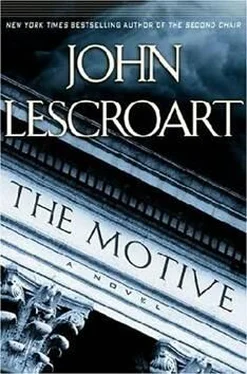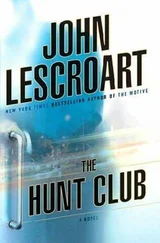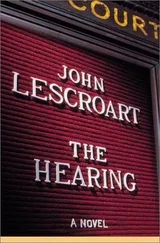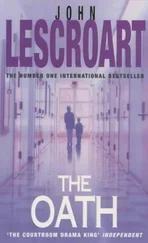But that moment abruptly came to an end during the next exchange.
"Can I ask you something, Inspector?"
"Sure."
"The arson inspector thought they both might have been shot. Have you found out if that's true?" "Yes. It is."
"So they were murdered?"
"Yes, ma'am. Or maybe one of them killed the other, and then himself." "Or herself."
"Maybe," Glitsky said. Although he found them compelling and consistent with his own experience, he wasn't going to get into a discussion of Inspector Becker's theories on why, in a scenario like this one, it probably wasn't the woman.
"But you think it was Paul?"
"I don't know." He was silent for a minute, then realized that the details would undoubtedly be in the paper tomorrow, possibly on the television in a couple of hours. He wouldn't be giving anything away. "The location of the woman's wound indicated that she didn't kill herself. It was up behind her head. Probably not self-inflicted." "And what about Paul's?"
Glitsky let out a breath. "About where you'd expect in a suicide. Just over the right ear."
Another short silence. Then Catherine Hanover said, "Wait a minute. The right ear?"
"Yes."
"You're sure?"
"The medical examiner was, and he usually gets it right."
"I think maybe you ought to go back and double-check."
"Why?"
"Because-I thought everybody knew this, but-Paul had polio back in the early fifties. His right arm was paralyzed. It was dead. He couldn't use it at all."
Glitsky caught up to Kathy West as she pursued a photo op out of the newly refurbished, utilitarian, yet lovely again Ferry Building at the bay, the eastern end of Market Street. The sun, dusk-bound, had just slipped under the blanket of coastal fog that came to cover the city at its western edge at this time of day, at this time of year. In late spring and early summer, San Francisco bore a marked climatic resemblance to Newfoundland. It was still nowhere near the evening proper, although what had only moments before been a shining, sparkling, even inspiringly welcoming downtown suddenly lost its direct sunlight and turned quite cold. Now gusts of the chill early-evening breeze flung open the jackets of businessmen, rearranged the hairstyles of women. Newspapers and food wrappers swirled in the eddies of alleyways and skyscapers.
The mayor's office told Glitsky that he'd find her somewhere along Market if he missed her at the Ferry Building, but he should try there first. He had Paganucci drop him out front and walked head down, hands deep in his pockets, until he got himself out of the wind and inside. Her honor and the press entourage surrounding her were just coming out of Book Passage, where she'd "spontaneously" picked up a couple of novels, three cookbooks, a handful of musical CDs, Don Novello's latest humor and a travel guide to Italy-all of it written and /or performed by San Franciscans.
Glitsky was standing to the side, listening with some skepticism while West talked to the assembled reporters, extolling the virtues of the city, its ongoing importance as a mecca of creativity and art, as these many eclectic works so amply illustrated. A bearded man in a wheelchair removed himself from the immediate group of a dozen or so reporters and photographers and rolled over next to him.
Glitsky knew Jeff Elliot well. A fellow alumnus, along with West and himself, of the DA's kitchen cabinet, Elliot wrote the Chronicle's "CityTalk" column. He suffered from multiple sclerosis, and Glitksy knew that he had recently had to abandon his sometime use of crutches for a full-time wheelchair.
"What are you doing here?" Elliot said.
"Some business with the mayor."
"Want to talk about it? See your name in the paper?"
"It's what I live for." Glitsky almost smiled. "Maybe later, if it turns out to be anything. Don't let me keep you from getting a quote about how artist-friendly the city is. You're not going to hear too many of them."
"Or none."
"Well, the mayor just said it, so it must be true."
"If it is, it's a major scoop." Elliot looked up at him. "You know any struggling artists that actually live here?"
"I hear a couple of homeless guys are tagging every inch of the Fourth Street freeway ramp."
"I don't think she's talking about them."
"She's talking about the city supporting artists. The only way it does that is if they're homeless first and artists second."
Elliot made no response, listened to the mayor for another minute. "It must just be me," he said.
"What?"
"Finding that this city is a bit of a challenge lately to survive in, much less thrive. And I shouldn't talk. I've got a good job. What if you're trying to do art? Can you imagine?"
"No. But the mayor says we're all open arms." " 'And Brutus is an honorable man.' "
Glitsky looked down at him. "If you say so, Jeff."
"That was Shakespeare. Antony's speech after they killed Caesar."
"I thought so," Glitsky said. "I was just going to say that." He brought his attention back to the mayor. "So why are you here? What's this about? It can't be the poor, struggling artists."
"No. Actually, it's an interesting idea. This is the first of Kathy's scheduled walking press conferences. You haven't read about them?"
"Nope."
"I've written about them twice now. The 'Neighborhood Strolls'?"
"Still nope."
"You're letting me down here, Abe."
"I'll give myself twenty lashes when I get home, if I ever do. So what are they about, these strolls?"
"Well, it's going to be in several different neighborhoods in the next weeks, but today she's walking Market from here to Van Ness."
"That's a good walk. Lots of wildlife."
"About twenty blocks worth."
Glitsky lowered his voice. "Is she nuts? Here to Van Ness? That's derelict central."
"Yes, it is. I believe she knows that."
"So she wants to see people peeing and worse in public fountains? Or selling dope on the street? And she's doing this because…"
"Because she wants people to know that she shares the same concerns for public safety, cleanliness and general civility as does the majority of the public."
Glitsky shook his head. "She's barking up the wrong tree, Jeff. The voters don't care about that. They care that we're compassionate and diverse and sensitive, but I don't see much sign of caring about public cleanliness."
"Well, there you go. But Kathy's idea is that by her witness to the decay in these areas, she's-and I believe I'm quoting here-'serving notice that fixing this historically blighted corridor through the heart of the city is going to become a priority for my administration, and a boon to the city in general.' "
"And how is this going to happen again? By her walking down it?"
"That's the theory. We report on the problems she encounters, awareness goes up, people see how bad some places are and stop tolerating them."
This time, Glitsky snorted quietly. "No, no. You've got it backwards. We need to tolerate them more because we don't understand them. 'The fault, dear Brutus, is not in our stars, but in ourselves.' Shakespeare again."
"Thank you, I guessed. Ah, she sees you."
Handing her shopping bag to one of her aides-she hadn't known Glitsky was going to be there, but she instinctively rose to a political moment when she saw one-she turned to the reporters, quite a decent crowd considering that there was no real story to cover. "Excuse me," she said. "I need to talk to the deputy chief."
In an instant she was at their side, greeting them both, asking Elliot if he could give them a moment. Glitsky lifted a hand in an ambiguous salute-he was either greeting Kathy or saying good-bye to Elliot. Or maybe both.
"I didn't mean to crash your party, Your Honor. If you're in the middle of something…"
"Abe. I told you this morning, it's Kathy. And no, this is fine. We can talk as we walk."
Читать дальше












